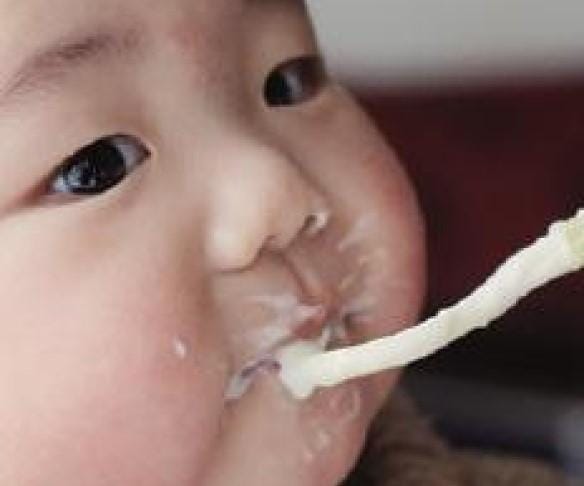Cow’s milk protein allergy usually shows up before baby’s first birthday. Good news is, most children may outgrow it.
Cow’s milk protein allergy happens when a baby’s immune system reacts to the proteins in cow’s milk. Formula-fed babies react to the milk protein in the formula. Breastfed babies react to the cow's milk protein in Mom's diet that are passed through her breastmilk. In both cases, the body’s immune system treats this protein as a foreign substance and tries to fight them by releasing natural chemicals, such as histamines, which cause the allergic symptoms that your baby may be experiencing.
What to Watch For
Symptoms of cow’s milk protein allergy can vary, and they can affect different organ systems in the body. This can make it difficult to pinpoint a cause. Also keep in mind that every case is unique, so it helps to be aware of all the possible symptoms. Get in touch with your baby's pediatrician if you suspect your child has cow's milk protein allergy.
Talk to your baby's doctor if you should see any of these areas of concern.
Common symptoms of cow’s milk protein allergy
These symptoms happen within minutes or hours after your baby has been fed formula or exposed to milk protein through other products or even mom's breastmilk. Severe symptoms like hives, difficulty breathing, and facial swelling can happen within the first half hour.
Will They Always Have a Milk Allergy?
The good news is cow’s milk protein allergy is one of the allergies children often outgrow. This usually happens by the time they are between 2 and 5 years old, and 80% of children will be cow’s milk protein allergy-free by their 16th birthday. Allergies to eggs, soy and wheat are also often outgrown; however, allergies to peanuts, tree nuts, fish or shellfish may be life long.






